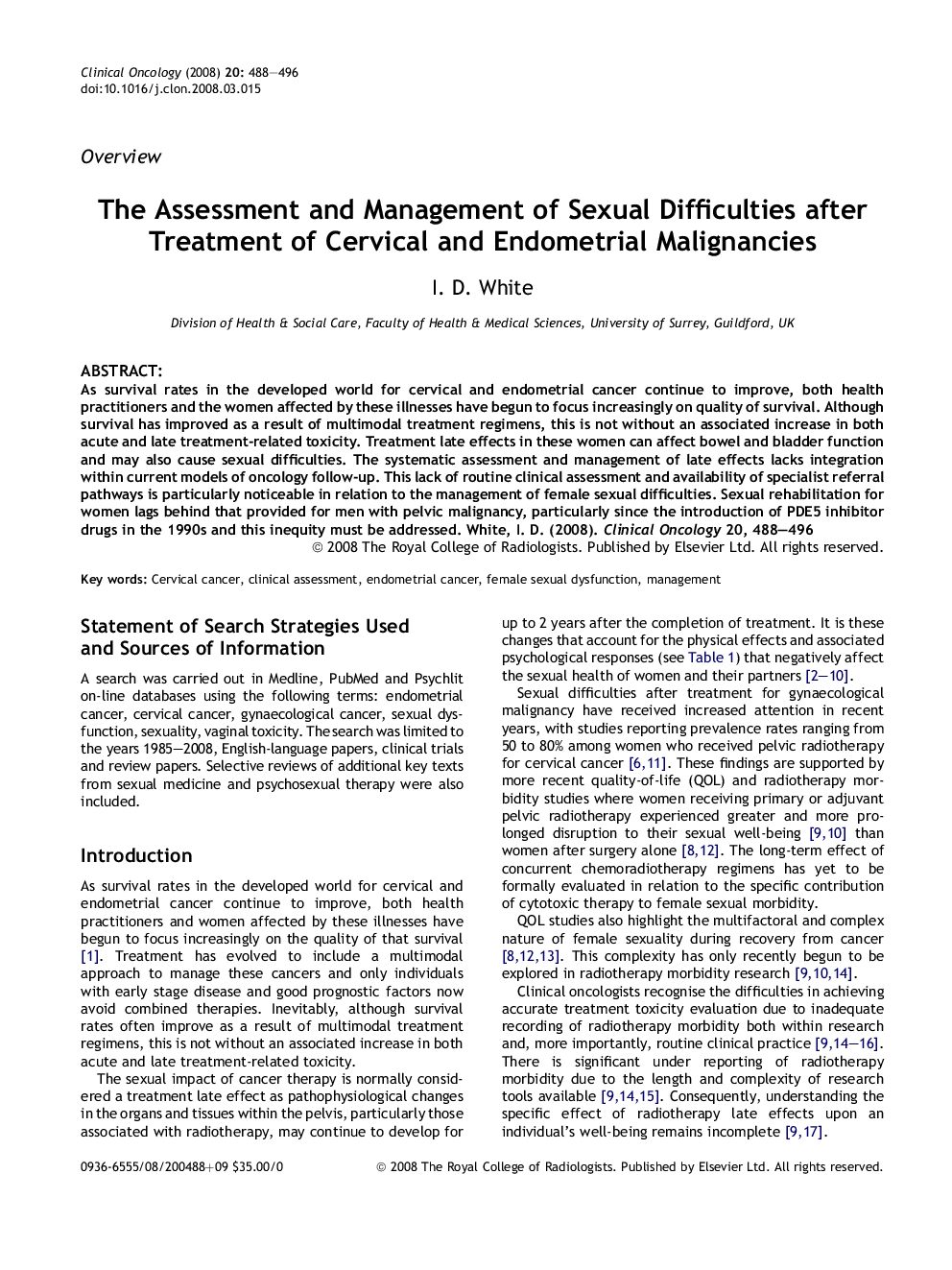| Article ID | Journal | Published Year | Pages | File Type |
|---|---|---|---|---|
| 5699812 | Clinical Oncology | 2008 | 9 Pages |
Abstract
As survival rates in the developed world for cervical and endometrial cancer continue to improve, both health practitioners and the women affected by these illnesses have begun to focus increasingly on quality of survival. Although survival has improved as a result of multimodal treatment regimens, this is not without an associated increase in both acute and late treatment-related toxicity. Treatment late effects in these women can affect bowel and bladder function and may also cause sexual difficulties. The systematic assessment and management of late effects lacks integration within current models of oncology follow-up. This lack of routine clinical assessment and availability of specialist referral pathways is particularly noticeable in relation to the management of female sexual difficulties. Sexual rehabilitation for women lags behind that provided for men with pelvic malignancy, particularly since the introduction of PDE5 inhibitor drugs in the 1990s and this inequity must be addressed.
Related Topics
Health Sciences
Medicine and Dentistry
Oncology
Authors
I.D. White,
